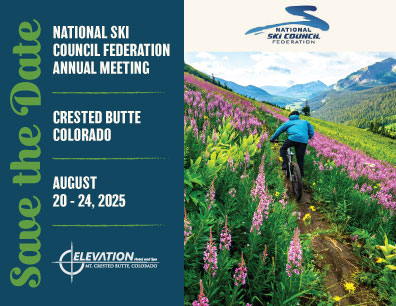11 Ways to Salvage a Trip if You Get Sick
Getting sick while traveling probably comes with the gig. Between last-minute stress before we leave, red-eye flights in an anything-but-sanitary environment, unfamiliar food and sleep disrupted by jet lag, the rigors of travel are enough to make any of us more susceptible to sickness.
1. Check your insurance before you travel.
Heck, check right now. This is one of those things few people ask about until they need it, and then it might be too late. If you are not covered for medical care while traveling, we highly recommend purchasing trip insurance with medical coverage.
Note that Medicare does not cover most medical costs incurred outside the United States, so seniors especially should look into travel insurance before going abroad. Read more about travel insurance.
2. If your illness is serious, contact your embassy or consulate.
If you are really sick, you don’t want to end up in a random doctor’s office or foreign ER without knowing whether the staff is competent, without anyone knowing you are there, or with language or other communication barriers. Embassy and consulate officers can recommend local health care providers, direct you to a hospital, notify family, assist with the transfer of funds, help arrange for transport and more. Don’t be wary of contacting your nearest embassy if things get dire; these folks are paid with your taxes and are there to assist.
3. Find a good doctor.
If you are traveling within your home country, the best way to find care covered by your insurance is to call your insurance company or visit its website. You can also check sites like HealthGrades.com for reviews of local doctors.
If you are overseas, the International Society of Travel Medicine (ISTM.org) and the International Association for Medical Assistance to Travelers (IAMAT.org — membership required) offer guidance and recommendations to travelers needing health care.
For more, read Health Care Abroad.
4. Start medications right away.
Many of us are reluctant to run to the nearest doctor or pharmacy when we’re not feeling well, instead preferring to gut it out while a malady runs its due course.
When traveling, however, taking this tack might mean that your vacation is over by the time you actually feel better, so I encourage you to pounce on whatever medications are available as soon as you start feeling under the weather. Over-the-counter fever and pain reduction medicines (ibuprofen, acetaminophen, aspirin), antacids or stomach soothers, Nyquil-type medications to help you get through the night, and even simple stuff like throat lozenges can be great allies in dispatching your symptoms quickly.
In some locations, it can be tricky to find the medication you need, particularly if there is a language barrier involved, so we recommend bringing medications and first-aid items with you from home. To see which remedies we wouldn’t travel without, check out Medications for Travel.
5. Protect your traveling companions.
If one sick traveler is a source of misery for everyone on the trip, multiple sick travelers can shut things down completely. If you feel an illness coming on, take immediate action to protect your fellow travelers. Here are a few ways to prevent spreading your germs to your companions:
– Wash your hands regularly (and encourage your companions to do the same)
– Carry and handle all of your own stuff
– Remove your toothbrush from the sink counter
– Don’t stick your hands into their snacks
– Don’t get food from the buffet for anyone but yourself
– Don’t share food, utensils or glasses
– Don’t use others’ cell phones or handle their room key
– Use the same pillow every night
6. Quarantine yourself.
If you are really sick, you might consider quarantining yourself by paying for a separate hotel room for a night or so. Not only will you protect your companions from germs, but you’ll also be less likely to disturb them with your coughing, tossing or turning — and without sleep they’ll be more vulnerable to contracting illnesses themselves.
This can be cost-prohibitive, but on a trip many years ago, a friend got pretty sick, and we shared the cost of an extra hotel room. After a rough night’s sleep, our friend had gotten through the worst of the illness by check-out the next day, and we all felt it was money well spent.
If a separate room isn’t possible or practical, stake out a portion of your shared room and make it your own, with no overflow of stuff to or from the space.
7. Realize that your illness is temporary.
Most common travel maladies last about a day or two — or at least the worst of it lasts that long. If you employ some of the strategies above, get a ton of rest and wait it out for 18 to 36 hours, in most cases you can get fully back into the thick of your trip.
8. Turn your hotel into your personal recovery ward.
With its room service, big beds, bath or shower with a bottomless hot water heater, Wi-Fi and a huge television at the foot of the bed, your hotel is as luxurious a hospital ward as you are ever going to find. Enjoy it to the fullest.
9. Coddle your digestive system.
You’ll likely want to ditch any adventurous eating habits until you are well again; give your system the nutrients it needs, but don’t tax it unnecessarily with risky or challenging foods.
Also, drinking plenty of water is a given, although it is important to make sure it is clean and safe (as contaminated drinking water may have been the source of your malady in the first place). See Drinking Water Safety for more information.
Many folks recommend probiotic (or even prebiotic) foods both for prevention and recovery; you might want to look into these for your meals.
10. Adjust your expectations, and find the next best option.
Once you have tended to all of the precautions and treatments, you may need to change your expectations for your trip. Given the planning, money and precious vacation days that go into most trips, this can be the hardest task you will face.
But with a shift in expectations and attitude, you can turn a setback into a sweet patch of rare repose and solitude. Can’t hike to the bottom of the Grand Canyon today? If you aren’t completely laid up, how does spending two or three hours perched at the top of the canyon watching the late afternoon, then the golden hour, then the blue hour sound? Bundle up, take it easy and take it all in.
If even that is too much, plowing through books and magazines from the comfort of your hotel room has its own appeal. Some of my favorite “sick days” ever were spent doing next to nothing except reading.
11. Soldier on.
At some point in your recovery, you will have to decide when well enough is good enough to get back on the trail. You might have to modify some of your planned activities, but once you’ve recovered to the point where you would go to work if you were back home, then it’s probably time to get on with your trip as well.
Posted from Smarter Travel




